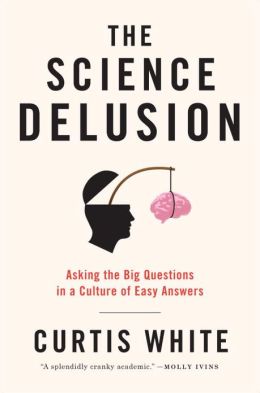What I’ll be Reading This Month

Bumbling around the web tonight, drinking tea and trying not to disturb the cat while she teetered on one of my thighs, while the laptop teetered on the other, I encountered a slew of articles that irritated the shit out of me.
The first one was over on Salon, where it discussed how tech corporations are attempting to co-opt the practice of Buddhist meditation to up the well-being and job performance of their employees. Reading that felt like chewing on a piece of tin foil. I recoiled and started doing a bit more research and discovered this statement from Google’s Search Inside Yourself Leadership Institute website:
“Developed at Google and based on the latest in neuroscience research, our programs offer attention and mindfulness training that build the core emotional intelligence skills needed for peak performance and effective leadership. We help professionals at all levels adapt, management teams evolve, and leaders optimize their impact and influence.”
Uhm…OK…
So now mindfulness is enabling corporations to “optimize impact�
That’s just what I want more of in my life — corporate optimization.
And I echo culture critic Curtis White‘s response, when he noted:
“In this view of things, mindfulness can be extracted from a context of Buddhist meanings, values, and purposes. Meditation and mindfulness are not part of a whole way of life but only a spiritual technology, a mental app that is the same regardless of how it is used and what it is used for.”
Having read that quote I went on a search for the interview the quote was lifted from, and I found it here, titled The Science Delusion, over on Tricycle.
You need to read it to understand the particular gulf we live in today. Especially if you are a young person contemplating your future. The implications for the arts and humanities are disturbing, unless of course your only aim is to have a tremendous amount of followers on YouTube because you’re able to shill Doritos to your followers and then Frito-lay cuts you a check (depending on the number of video views, of course). See Frontline’s Generation Like for more insights into that nightmare.
And then Consider White’s ideas here, from the same Tricycle interview. And then buy his book.
“Anyone who doubts the seriousness of this vision should read David Brooks’s December 2013 column for The New York Times “Thinking for the Future,†in which he predicts that the economy of the future will depend upon “mechanized intelligence.†Fifteen percent of the working population will make up a mandarin class of computer geeks and the “bottom 85%†will serve them as “greeters†or by doing things like running food trucks. And yet, Brooks claims, this vast class of servants will have “rich lives†that will be provided for them by the “free bounty of the Internet.†“



















